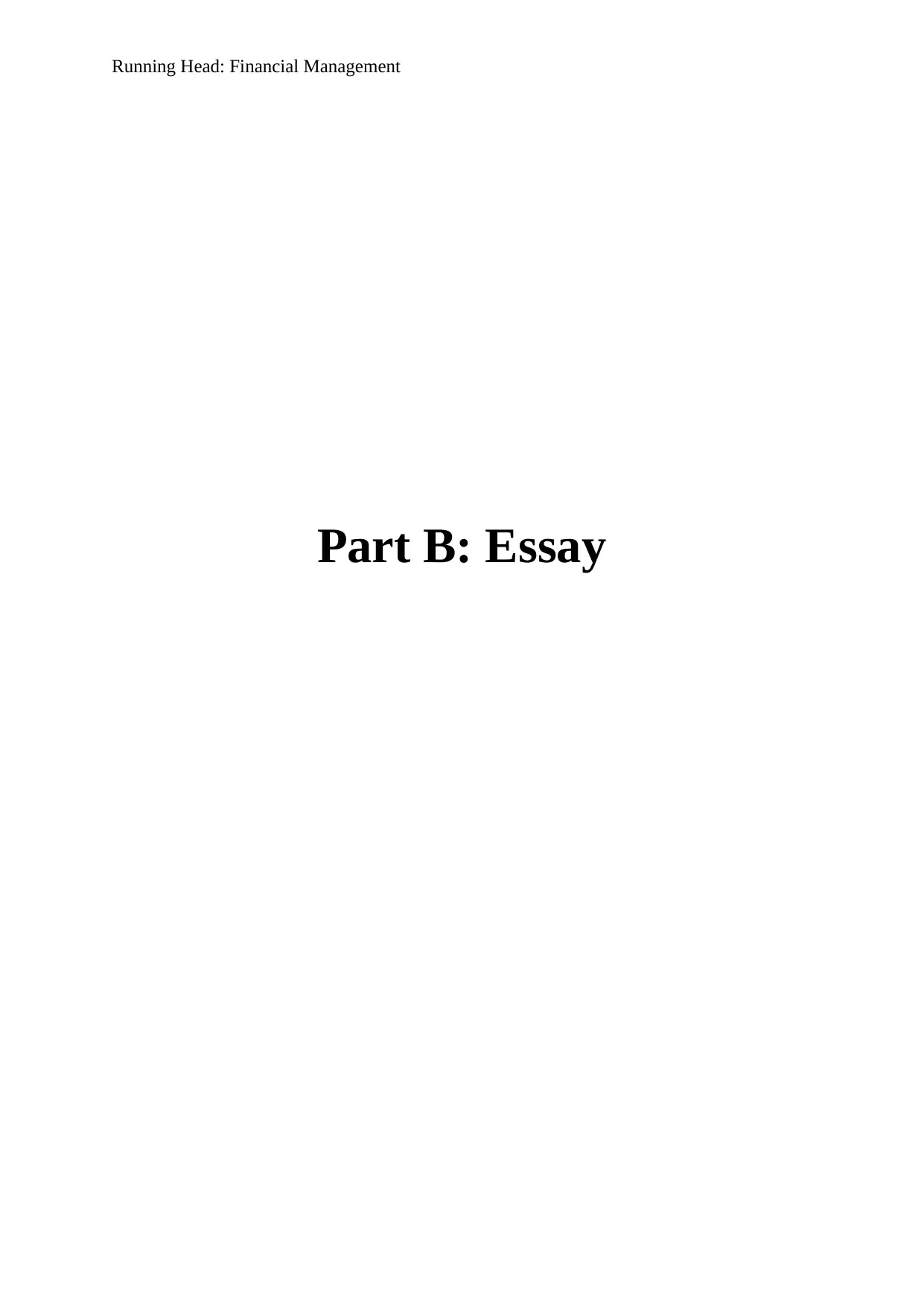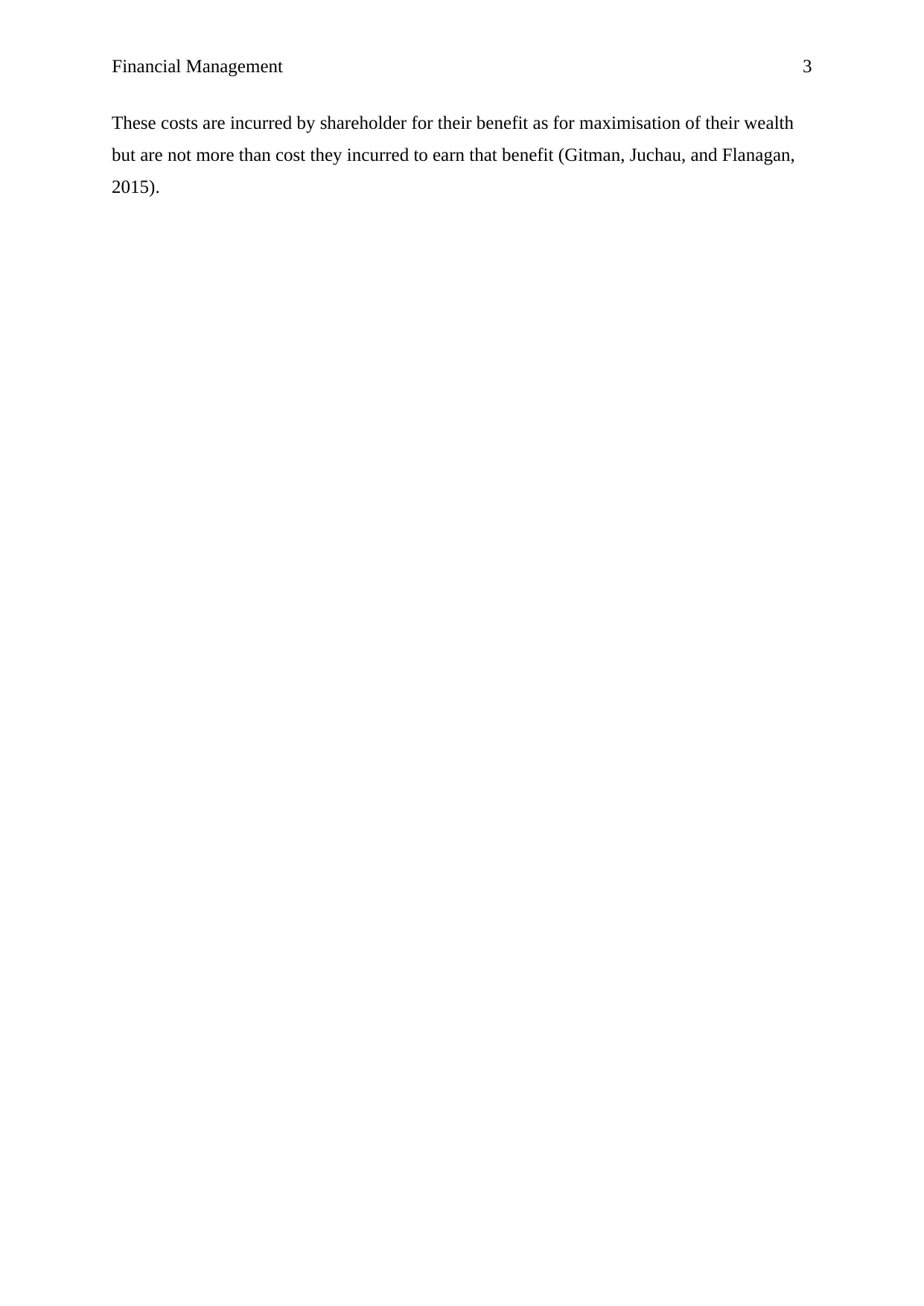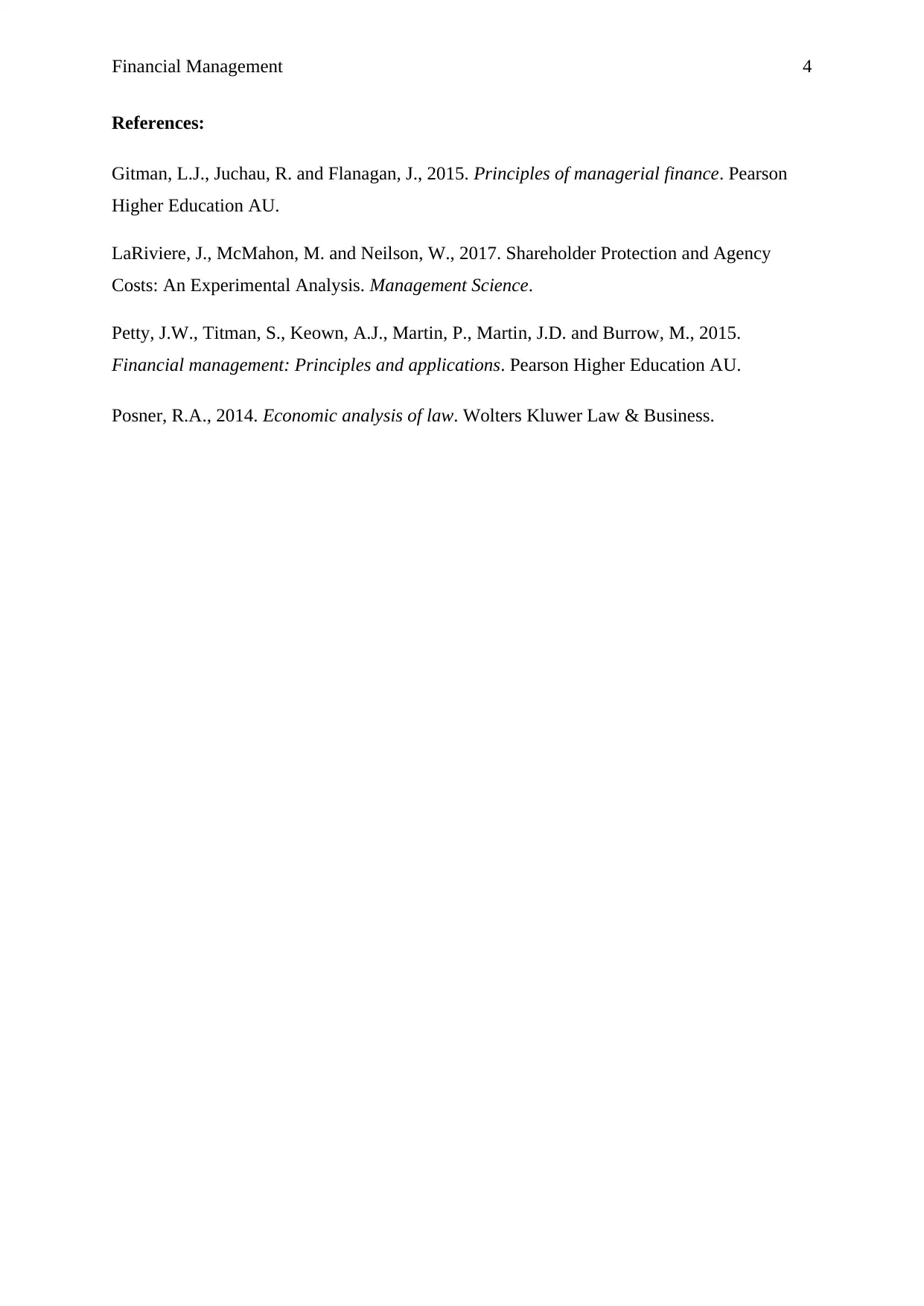Financial Management Report: Agency Costs and Shareholder Interests
VerifiedAdded on 2020/05/16
|4
|604
|162
Report
AI Summary
This report delves into the concept of agency costs within financial management, highlighting the inherent conflicts of interest between managers and shareholders. It explains how these costs arise from disparities in objectives, where managers may prioritize company growth and personal benefits while shareholders aim to maximize their wealth. The report explores how agency costs manifest in public companies and examines the financial incentives used to align managerial actions with shareholder interests. It outlines four key costs incurred by shareholders to mitigate agency problems: monitoring costs, bonding costs, opportunity costs, and structuring costs. The report references several academic sources, including Gitman, Juchau, and Flanagan (2015), LaRiviere, McMahon, and Neilson (2017), Petty, Titman, Keown, Martin, Martin, and Burrow (2015), and Posner (2014), to support its analysis of agency costs and their implications in financial management.
1 out of 4







![[object Object]](/_next/static/media/star-bottom.7253800d.svg)